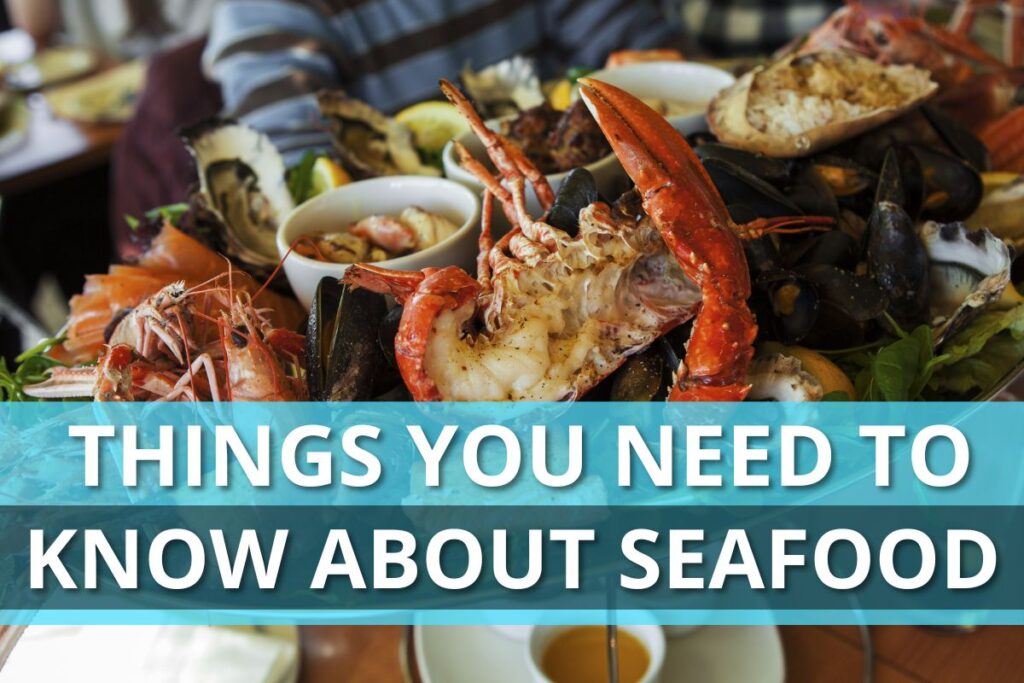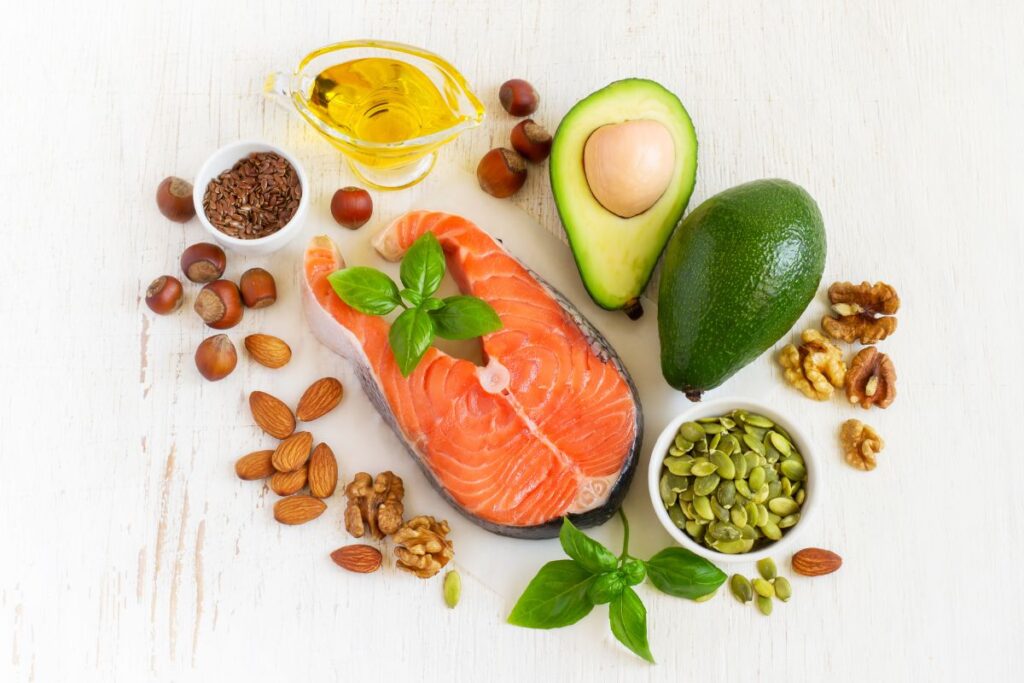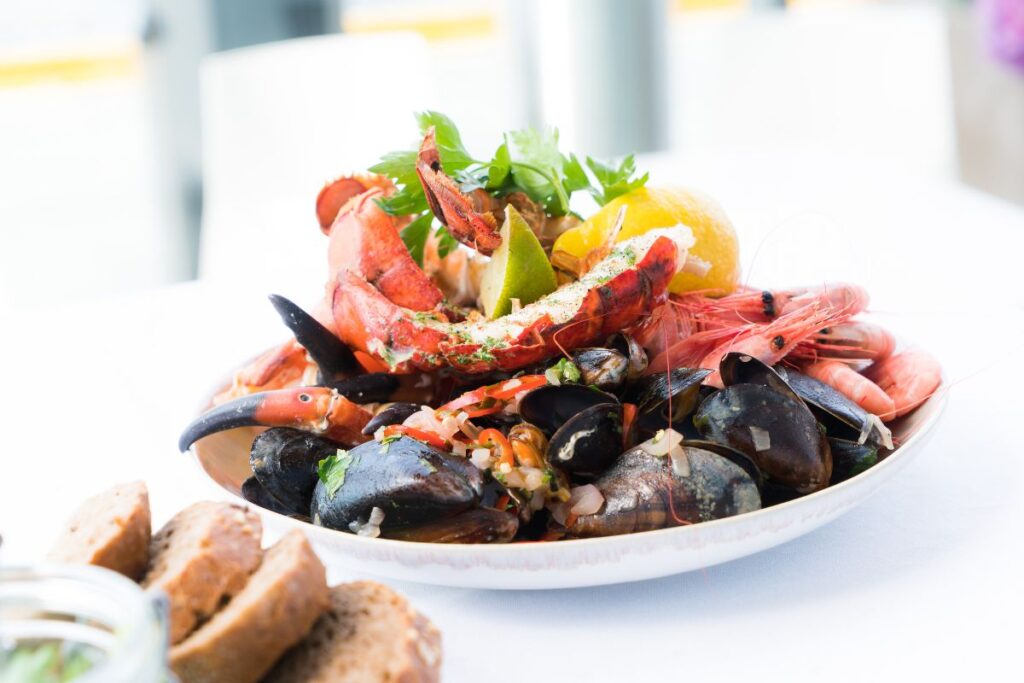Things you need to know about seafood
Author:
Unlock your full potential by engaging with our experts and community! Have questions about your fitness journey or looking for expert advice on weightlifting techniques? Don’t hesitate — leave a comment below and Sergii Putsov will provide a personalized answer and insights to help you reach your goals.
Torokhtiy is reader-supported. Some links are affiliate links, and we may earn a commission at no extra cost to you. See our disclosure page for details.

Staying away from fish and seafood you’re missing a chance of getting a whole lot of nutrients. Moreover, fair amounts of some of these nutrients are contained in fish only.
The high-quality protein source
Everybody knows that animal products are the richest source of protein per 100 g of the initial product. Fish and seafood are no exception here. They contain all essential and well-absorbed amino acids.
If you are a weightlifter then your need for protein is significantly higher than that of an average person. And fish is a great helper to satisfy your demands for this macronutrient. The greatest amount of protein (per 100 g) is contained in:
- Canned anchovies (29 g);
- Baked trout (26,5 g);
- Sockeye (red) salmon (26,5 g);
- Baked tilapia (26 g);
- Baked chum salmon and chinook salmon (25,7 g)
- Baked atlantic salmon (25,5 g);
- Baked mullet (25 g).
The unique omega-3 fatty acids source
Seafood contains the densest concentration of long-chain fatty acids Omega 3 including eicosapentaenoic acid (EPA) and docosahexaenoic acid (DHA) among all food products. Fatty fish is exceptionally rich in these acids.
You may like it:
Plant products also possess omega-3 fatty acids, especially walnuts, linseed oil, flax seeds and chia. Plant products, however, constitute a great source of alpha-lipoic acid (ALA). That’s why it is important to comprehend that whenever we talk about omega-3 originating from nuts it means we get plenty of alpha-lipoic acid and just a little EPA and DHA from them.

The richest sources of EPA and DHA are sardines, mackerel, herring and salmon.
So what are the benefits of omega-3 fatty acids for weightlifters? They can mitigate the DOMS syndrome, fortify the immune function, improve recovery after heavy workouts and also maintain joint health by reducing inflammation.
The unique vitamin D source
Within the context of vitamin D content fatty fish is a unique product. Fatty fish, in fact, is the only food containing vitamin D in large amounts. Just as in the omega-3 fatty acids case. The only exceptions are ultraviolet exposed mushrooms and vitamin D fortified foods: cow’s milk, soy milk, ready-to-eat cereals and other products.
The biggest amounts of vitamin D are contained in salmonids: trout, sockeye salmon, pink salmon, coho salmon and herring.
Vitamin D plays a crucial role in skeletal muscle function support, it also participates in protein synthesis, sustains bone health and the immune system. All these positive effects are very important for us, the athletes.
The vitamin B source
Some B group vitamins are a part of enzymes involved in ATP synthesis which is a universal energy carrier in our bodies that is also used for muscle contraction. Vitamins B6, B9 and B12 help to convert creatine to creatine phosphate. B group vitamins are vital to keep the proper functioning of the nervous system which is responsible for nerve impulses to skeletal muscles transmission. Fish and seafood are wonderful sources of B group vitamins.

The important minerals source
Iron, as a part of the hemoglobin complex, plays a key role in oxygen transport in our bodies. Iron keeps the immune function confronting infections and participates in energy production which is of the utmost importance for athletes. Iron deficiency results in reduced physical efficiency.
Fish, like other animal products, contains the most bioavailable form of iron – heme iron. The best sources of iron in fish and seafood:
- Octopus, oysters and mussels;
- Canned anchovies and sardines;
- Trout, mackerel, herring.
Zinc plays an important role in body growth and development, it supports immune function and other processes. Zinc deficiency increases susceptibility to infections, and athletes definitely don’t need such a thing.
As zinc binds with protein, sea products that are sources of both zinc and protein, increase the bioavailability of this mineral. Oysters are among the richest natural zinc sources. Fair amounts of zinc can be found in the following products:

- Octopus and mussels;
- Squid and shrimps;
- Anchovies and sardines;
- Herring.
Selenium is an antioxidant that supports immune system function. Fish is among the top sources of this mineral in all groups of food products. It is only excelled by the Brazilian nut that contains more selenium per serving.
Best selenium sources:
- Mussels, octopus, squid;
- Tuna, tilapia;
- Anchovies, sardines;
- Mackerel.
Iodine is critical for the normal functioning of the thyroid and thyroid hormones output. Iodine, therefore, produces an important impact on body growth and development, protein synthesis, nervous system operation and cell oxygen consumption.
Iodine is contained in the majority of seafood. Moreover, fish and seafood in comparison to other foodstuffs that are commonly consumed in many diets, possess the highest iodine concentration.
The best iodine sources – cod, flounder, canned tuna, oysters and shrimps.
Calcium is necessary for bone health and efficient muscle contraction. Fish with bones is a great calcium provider and the richest ones are canned sardine and bone-in salmon. By the way, good calcium absorption heavily depends on adequate quantities of vitamin D in your diet. As you see fish and seafood contain many essential nutrients: fatty acids, amino acids, vitamins and minerals. Big quantities of some of these nutrients such as vitamin D and separate classes of omega-3 fatty acids are contained solely in fish, especially fatty species. Eat fish and seafood regularly, don’t miss a chance to make your menu even more well-balanced!
RELATED ARTICLES:
- 8 FACTS ABOUT BROCCOLI
- WILD RICE
- TOP-5 FAT PRODUCTS
- BERRIES: NATURAL ANTIOXIDANTS AND YOUTH INGREDIENTS
You might be interested in:
Why Trust Us?
With over 20 years in Olympic weightlifting, strength training, nutrition coaching, and general fitness our team does its best to provide the audience with ultimate support and meet the needs and requirements of advanced athletes and professional lifters, as well as people who strive to open new opportunities and develop their physical capabilities with us.
By trusting the recommendations of our certified experts in coaching, nutrition, and sports training programming, as well as scientific consultants, and physiotherapists, we provide you with thorough, well-considered, and scientifically proven content. All the information given in the articles concerning workout programming, separate exercises, and athletic performance, in general, is based on verified data.
The product testing process is described in more detail here.
Author: Sergii Putsov
Head of Sport Science, PhD
Best Results: Snatch – 165 kg,
C&J – 200 kg
Sergii Putsov, Ph.D., is a former professional weightlifter and National team member, achieving multiple medals in the 94 kg weight category at national competitions. With a Master’s degree in “Olympic & Professional Sport Training” and a Sport Science Ph.D. from the International Olympic Academy, Greece, Sergii now leads as the Head of Sport Science. He specializes in designing training programs, writing insightful blog articles, providing live commentary at international weightlifting events, and conducting educational seminars worldwide alongside Olympic weightlifting expert Oleksiy Torokhtiy.




Still have questions after reading our article? Unlock your full potential by engaging with our experts and community! Don’t hesitate — leave a comment below and Sergii Putsov will provide a personalized answer and insights to help you reach your goals.